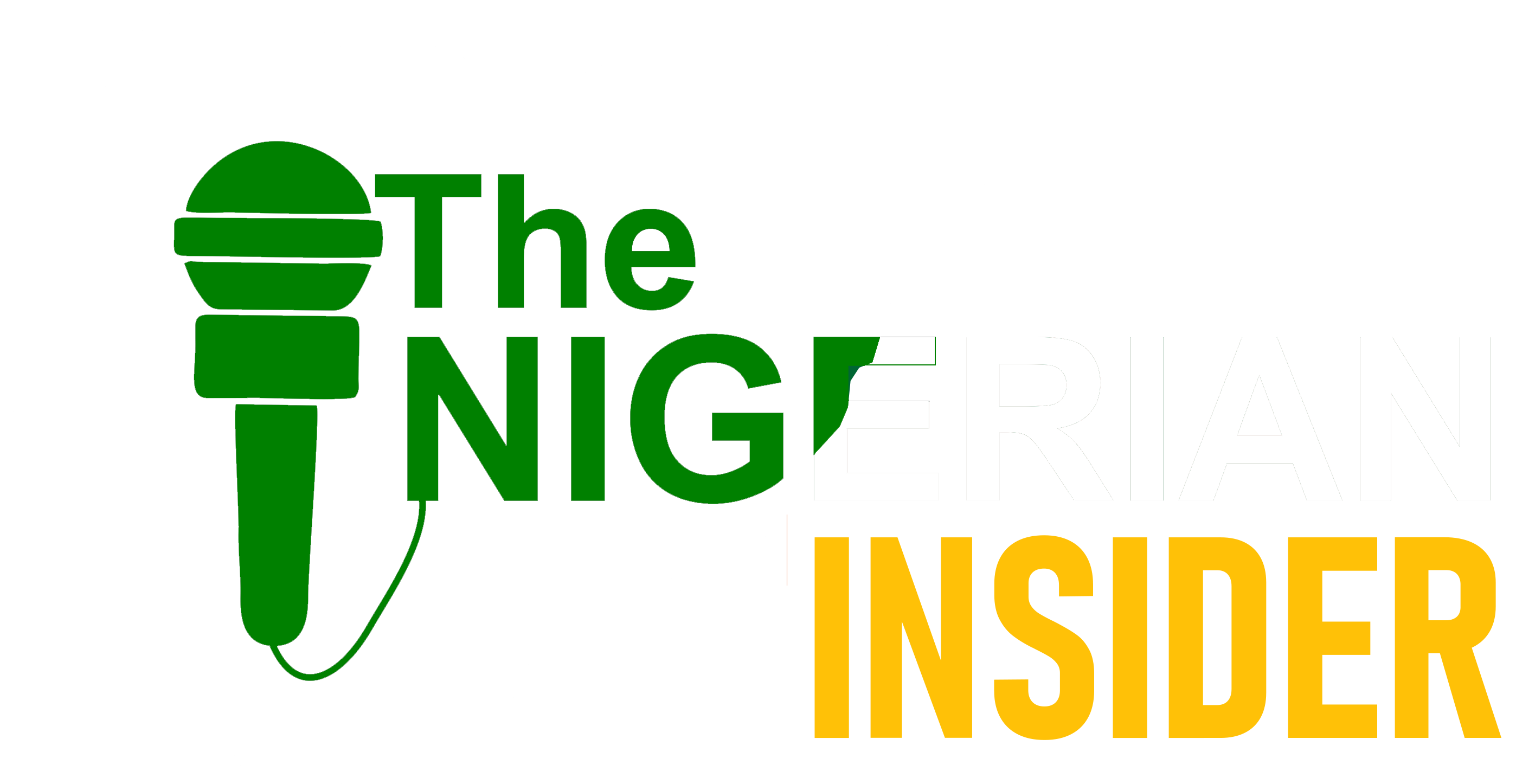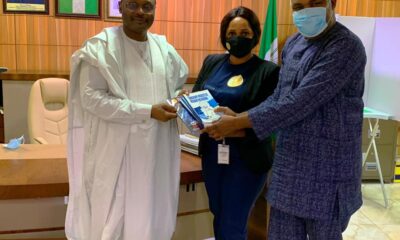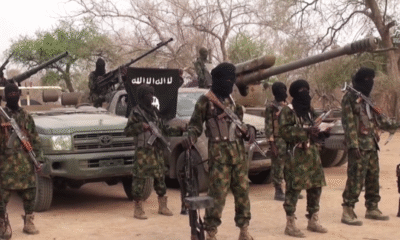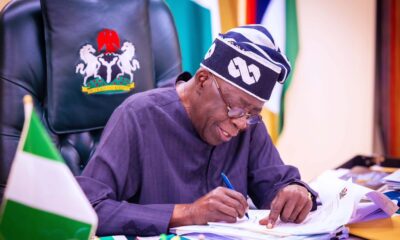News
Concerns About New Customs Levy and Declining Vehicle Affordability
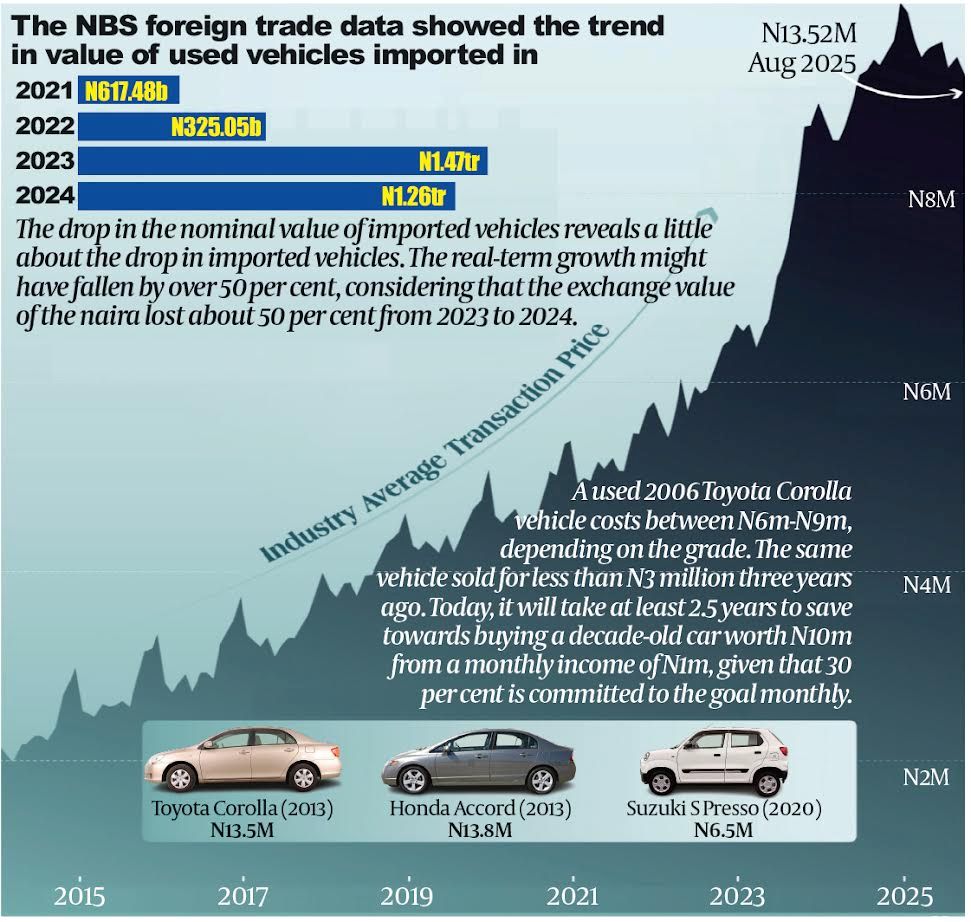
The implementation of a new four percent free on board (FOB) valuation charge by the Nigeria Customs Service (NCS) has raised significant concerns among importers, clearing agents, and the wider business community. Many stakeholders are apprehensive about the potential rise in clearing costs and the impact on the financial well-being of citizens. Experts warn that the expenses associated with clearing imported vehicles and general cargo could increase by as much as 40 percent.
Auto dealers have also expressed fears that this new levy will push vehicle prices beyond the means of average Nigerians, thereby dampening demand for affordable used cars. Prices have already surged by as much as 350 percent due to the post-COVID-19 currency crisis, which has triggered widespread inflationary pressures. The lower- and middle-income sectors, particularly those purchasing more economical models like the Toyota Corolla, Honda Civic, Honda Accord, and some Nissan vehicles, are expected to feel the brunt of this new financial burden, affecting millions of families across the nation.
The unaffordability of cars could exacerbate hardship for families, particularly as reliable public transportation options remain limited or too expensive in many areas. A study by Cowrywise, titled “The Economics of Owning a Car,” indicates that owning a modest, used Nigerian car, such as a 2005 Toyota Corolla, can cost approximately N22.7 million over five years in Lagos, factoring in purchase price, fuel, maintenance, regulatory fees, repairs, and depreciation. Even when considering potential resale value, the net cost remains around N18.9 million.
Currently, a used 2006 Toyota Corolla is priced between N6 million and N9 million, a stark increase from under N3 million just three years ago. For an individual earning N1 million monthly and saving 30 percent towards a car, it would take approximately 2.5 years to purchase a 10-year-old vehicle priced at N10 million.
Dealers report diminishing profit margins on affordable vehicles and rising import prices prompting many importers to turn to luxury models that are only accessible to wealthier Nigerians, a necessary move for business survival. This trend has also driven up prices for Nigerian-used vehicles, leading to significant increases in prices across the market. According to data from the National Bureau of Statistics (NBS), the value of used vehicles imported in 2021 stood at N617.48 billion, rising to N325.05 billion in 2022. By 2023, this value reached N1.47 trillion, but then fell to N1.26 trillion in 2024, indicating a decrease in demand.
While the nominal value of imported vehicles has dropped, the real-term growth may have plummeted by over 50 percent due to the naira’s depreciation over the same period. Additionally, reports suggest that some importers may be exploiting the new levy to inflate vehicle prices unnecessarily.
Concerns have also been raised regarding some importers attempting to circumvent the new levy through under-declaration or by bringing in Fully Built Units (FBU) disguised as accidented or Completely Knocked Down (CKD) vehicles. However, Taiwo Fatomilola, the National Public Relations Officer for the Association of Registered Freight Forwarders of Nigeria (AREFFN), asserted that the Customs’ digital tracking and verification systems are sufficient to prevent such manipulations. He highlighted that the declaration of the full 17-digit chassis number on the bill of lading reveals the vehicle’s exact manufacture year and specifications, making it difficult to disguise imports.
Fatomilola also explained that both Customs and their IT partners can cross-reference the bill of lading with manufacturers’ databases to identify any inconsistencies between declared and actual vehicle types. He noted that past loopholes that allowed the omission of chassis numbers have been closed due to system upgrades in the Customs digital framework, emphasizing that recent advancements make it increasingly likely that fraudulent practices will be detected.
The digital system was updated on August 4, 2025, to implement the contentious four percent FOB charge, despite prior agreements to first eliminate the existing seven percent surcharge and one percent Comprehensive Import Supervision Scheme (CISS). Although the one percent CISS has been removed, the seven percent surcharge remains in effect. The NCS has introduced this four percent levy under the Nigeria Customs Service Act (NCSA) 2023, which is intended to replace the previous customs collection fee and CISS.
The Free on Board (FOB) value is determined by the worth of imported goods, including the cost of the goods and transportation expenses incurred up to the loading port.
Freight forwarders who have managed vehicle importation under the new regulations have reported an increase in duties of nearly 40 percent. Clinton Okoro, Chief Executive Officer of Globjoy Investment Limited, stated, “The increase is significant, with almost 40 percent added to our previous duty levels.”
During a town hall meeting with stakeholders, Comptroller-General of Customs (CGC) Bashir Adeniyi emphasized that the FOB levy is necessary to finance the technological advancements needed for modernizing customs operations. He clarified that this levy aligns with the Customs Act of 2023, which was approved by the National Assembly and signed into law by President Bola Tinubu earlier this year. Adeniyi addressed concerns regarding double charges, stating, “There was some confusion among stakeholders, but the Act clearly indicates that all operational and administrative costs will now be funded by the new FOB levy.”
The Guardian reviewed a clearing document for one consignment on the B’Odogwu platform, revealing a total value of N4,141,854. The applicable taxes include the four percent FOB, which amounted to N165.674.1; a twenty percent duty totaling 828,370.81; a fifteen percent National Automotive Council (NAC) levy at N621,278.11; and a 0.5 percent ETL charge of N20,709.27, among other fees.
Stakeholders warned of potential declines in port activity, increased numbers of abandoned consignments, and rising consumer goods prices, particularly during a period of the longest inflation run in the country’s history. Okoro, who also serves as the Public Relations Officer for the Tin Can Chapter of the African Association of Professional Freight Forwarders and Logistics of Nigeria (APFFLON), argued that the FOB-based charges impose a heavier burden than the previous system, which calculated a seven percent surcharge based on the cost, insurance, and freight (CIF) value. “Even if they removed the other charges, the four percent FOB would still be higher because it’s calculated differently, leading to significantly increased clearing costs,” he explained.
Providing further context, Okoro noted that vehicles purchased abroad for $4,000 to $6,000 now incur clearing costs around N3 million or more at Nigerian ports. He added that vehicles priced between $10,000 and $20,000 face even steeper clearing challenges, resulting in financial strain that discourages importers from bringing in new inventory.
“Sometimes, the clearing fees exceed the actual purchase price of the car, leading many to abandon their vehicles at the ports,” he stated. Okoro cautioned that the repercussions will ultimately impact Nigerian consumers, as importers will pass along the additional costs. “Nobody will import and sell at a loss. The increased clearing expenses will be reflected in higher final prices, worsening the already challenging economic situation for average Nigerians,” he added. He pointed out that many importers finance shipments through bank loans, and the rising logistics costs leave them with little choice but to raise prices to survive.
“Individuals importing vehicles for personal use might also abandon their cars at the ports if they cannot afford the new clearing costs. Customs might see this as advantageous since they auction off such vehicles, though that process lacks transparency,” he lamented.
Iwayeye Olatunji, Manager of Client Services at Inspired Cars, expressed his deep frustration, highlighting that vehicle importers now face additional fees on top of existing port charges and levies. “This represents a significant financial setback. The total cost now ranges from 30 to 40 percent of the vehicle’s value. For a car priced at N10 million, the clearing cost could exceed N3 million,” he commented.
Olatunji warned that the effects are already being felt in the market, as importers are reducing volumes while consumers rush to make purchases before prices escalate further. “It’s no longer cost-effective to import smaller cars. Only those who can afford high-end vehicles remain in the market. A Corolla, which was once an everyday vehicle, is now becoming a luxury item,” he said.
The Guardian has learned that port activities are declining, as businesses struggle with rising clearing costs, impacting their ability to repay bank loans. Taiwo Fatomilola, National Public Relations Officer for the Association of Registered Freight Forwarders of Nigeria (AREFFN), stated that the reintroduction of the FOB levy, coupled with the persistence of the seven percent surcharge, is crippling the vehicle importation sector and paralyzing operations at major ports. He described the situation at the Lagos Ports as resembling a “ghost town,” with both new and used vehicles trapped in uncertainty as importers and freight forwarders grapple with excessive charges.
According to a report by The Guardian, the introduction of the FOB levy alongside the retention of the seven percent surcharge is significantly harming businesses. “There’s nothing forthcoming. When you enter the port, it feels like a ghost town,” lamented Fatomilola. He noted that “if the previous duty was N8 million, the additional N6 million in FOB charges brings the total to N14 million to clear a vehicle.”
Fatomilola emphasized that this increase in FOB costs is about 40 percent more than the combined one percent CISS and seven percent surcharge. He accused vehicle importers of taking advantage of the situation at the expense of ordinary Nigerians by raising car prices unnecessarily. “If it weren’t for the greed of importers, this four percent increase shouldn’t affect vehicle prices. Their profit margins would shrink, but they are boosting prices without reason,” he stated.
He highlighted that freight charges from the U.S. to Nigeria typically range between $1,200 and $1,300 per vehicle, and cautioned that importers who use the FOB increase to elevate car prices risk alienating themselves from potential buyers. “They were profiting as much as N15 million to N20 million on a single vehicle. If they raise prices by an additional N1 million to N2 million due to the new charges, who will be able to afford them?” he questioned.
Eugene Nweke, Secretary of the Customs Consultative Committee (CCC), remarked that the reintroduction of the FOB levy is anticipated to impact the costs associated with importing goods. “It’s clear that the four percent FOB levy adds to clearance costs, which can be seen as an additional burden for shippers. While the Nigerian Customs Service might argue that it replaces existing fees and aims at modernizing customs operations, the reality is that it still elevates the financial burden on importers,” he explained.
However, Nweke pointed out that shippers can take some comfort in recognizing the port as a value-adding supply chain. “Despite this, the four percent FOB levy is an added value in the port supply chain, having replaced the one percent CISS and focusing on significant modernization efforts,” he added. He also addressed the implications for importers, stating that while the FOB levy might lead to higher costs that are likely passed to consumers, it could negatively influence the competitiveness of Nigerian businesses and the economy as a whole. “The FOB levy is usually paid during customs clearance, calculated along with customs duties, and follows its own debit note schedule and protocol,” Nweke clarified.
Credit: The Guardian
News
ARISE News Anchor Somtochukwu Maduagwu Found Dead Following Abuja Robbery, Reports FCTA

The Federal Capital Territory Administration (FCTA) has confirmed that Somtochukwu Maduagwu was brought to Maitama Hospital without vital signs after a robbery incident at her home in Abuja.
Dr. Dolapo Fasawe, the Mandate Secretary on Health for the FCTA, stated that ARISE News anchor Somtochukwu Maduagwu was pronounced dead upon arrival at Maitama General Hospital at approximately 4:30 am on Monday. This clarification was issued via a statement from the FCTA, aimed at addressing earlier claims that medical negligence contributed to her demise following the robbery.
Somtochukwu Christelle Maduagwu, affectionately known as Sommie, was a 29-year-old journalist tragically killed during an armed robbery at her Katampe residence in Abuja in the early hours of Monday, September 29, 2025.
Residents of the apartment complex reported that the attack transpired around 3 a.m. when over 15 armed robbers invaded the 16-apartment building. Witnesses indicated that security personnel sounded the alarm and tried to reach the police, but there was no immediate response. Sommie and a security guard, who also sustained injuries during the incident, were promptly taken to Maitama District Hospital. However, family members claimed they were denied urgent treatment due to not having identification documents readily available. Both victims later succumbed to their injuries.
In the meantime, FCT Minister Nyesom Wike expressed his condolences to the management and staff of ARISE News Channel regarding the unfortunate demise of Somtochukwu Maduagwu. He described her death as both tragic and painful, and he prayed for God’s continued support for the staff of ARISE News, particularly for the Chairman, Prince Nduka Obaigbena, and for the family and friends of the late journalist. The minister noted that a preliminary medical report would be provided to the police to assist in their investigation, emphasizing that all necessary steps would be taken to uncover the details surrounding her death. He reassured the family, friends, and colleagues of Somtochukwu Maduagwu that the police are committed to discovering the circumstances of her passing and ensuring that those responsible face justice.
Source: ARISE TV
News
Negotiations With Terrorists Undermine Elements Of Nigeria’s Statehood: HURIWA says
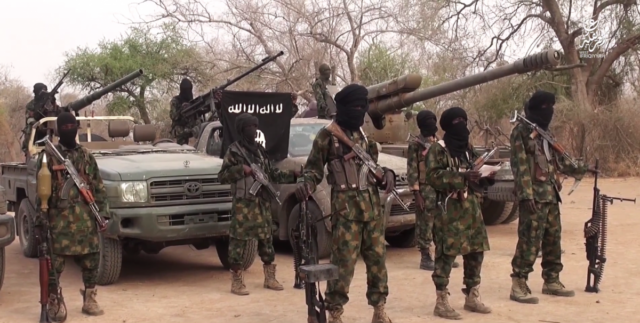
Pro-democracy and civil rights advocacy group HUMAN RIGHTS WRITERS ASSOCIATION OF NIGERIA (HURIWA) has condemned the Federal government for permitting some states in the North-west to negotiate the so-called peace agreement with terrorists, criminal gangs and armed kidnappers, just as the Rights group said the negotiations have undermined and eroded the key elements of Nigeria’s statehood.
HURIWA blames the ambiguities of the Federal government on how to deal decisively with armed brutes killing thousands of Nigerians for the expanding frontiers of terrorist attacks and the unprecedented insecurity in many parts of Nigeria. “Since the Federal Government is creating the impression that it is open to dialogue with terrorists, then more and more desperate criminals would escalate their criminal activities, hoping that they too would merit an invitation for dialogue by the current administration that is already discussing with terrorists in the North West for the so-called peace.
Criminal gang members who are watching the dialogue sessions with terrorists in the North West will automatically become daring and bloody so as to gain attention of the government that is too weak to militarily defeat terrorists and very willing to enter into negotiations for the so-called truce.”
HURIWA which expressed the position that any public office holder or private individual who negotiates with terrorists is also a terrorist, has therefore called on President Bola Ahmed Tinubu to stop the disgraceful surrendering of the Nigerian state to the whims and caprices of a motley crowd of armed bandits, bloodstained terrorists, armed kidnappers and criminal gangs in Katsina and some other states in the Northern States of Nigeria.
HURIWA said there is no doubt that what have played out in the last couple of weeks in Katsina, Zamfara and other places in the North West of Nigeria in the guise of local and state governments negotiating with terrorists for the so-called truce, amounted to the demolition of the four fundamental elements that qualifies Nigeria as a Sovereignty even as HURIWA postulated that the state as a person of international law should possess the following qualifications: (a) a permanent population (people); (b) a defined territory; (c) government (political authority); and (d) capacity to enter into relations with the other states (diplomat recognition or sovereignty).
HURIWA which condemned the negotiations with terrorists, said the impression being created globally with these charades going on in Katsina by way of negotiations for peace with terrorists responsible for killings of dozens of citizens is that Nigeria has gradually lost those key elements of statehood. HURIWA also stated that the negotiations have completely rubbished the determination of the families of victims of terrorism from achieving any sort of closure and justice for the terminations of the lives of their loved ones and the losses of livelihoods they suffered as a result of terrorist attacks.
HURIWA asked rhetorically thus: “Is it not preposterous that whilst the president Tinubu’s government has sanctioned negotiations with terrorists that are wanted by advanced and sophisticated nations such as the United States, the same administration sent out the Vice President Kashim Shettima to the United Nations General Assembly in New York to canvass that Nigeria be made a permanent member of the security council of the United Nations?
“Is this not a pathetic irony to openly demonstrate to the World that Nigeria’s statehood is eroding fast, as demonstrated by the show of shame called peaceful negotiations with terrorists who attended the so-called truce meetings in Katsina state, wielding some of the most sophisticated weapons of mass destruction and other combat weapons of military grades?
Has this government in Nigeria no shame and has the government no respect for the constitution of the Federal Republic of Nigeria? We insist that terrorists must be made to face the full wrath of justice, just as we believe that government is obliged to take justice to terrorists or bring terrorists to justice for their crimes of bloodshed and destruction of livelihoods of Nigerians.
HURIWA recalled that authorities in Nigeria’s northwestern Katsina state reportedly struck a so-called peace deal with criminal gangs in what it says is an effort to end years of violence, a government official confirmed to the media.
HURIWA recalled that Katsina is one of several states in northwestern and central Nigeria terrorized by criminal gangs that the locals refer to as bandits. The federal government, through the Defence Headquarters, had previously declared the leaders of the terrorists groups now negotiating with government as terrorists, even as huge amounts of money was promised as rewards for information leading to their arrests.
HURIWA wondered the logic in negotiating with criminal gangs that continuously raid villages, rape girls and children, kill and abduct residents, as well as torch homes after looting them.
HURIWA recalled that the terrorists and criminal gangs maintain camps in a huge forest straddling Zamfara, Katsina, Kaduna states in the northwest region and Niger state in the country’s central zone and have carried out mass kidnappings of students from schools in recent years.
HURIWA recalled that the Katsina State Government confirmed that a dozen bandit kingpins met with local officials and community leaders in the town of Danmusa, where they renounced violence and pledged to turn a new leaf, Nasiru Mu’azu, Katsina state internal commissioner said.
“There was a peace meeting between 12 bandit leaders and the local community leaders in Danmusa, where the bandits renounced their criminal activities and committed to peace,” Mu’azu said.
The bandits initiated the meeting, he said. “The community welcomed the overtures and agreed to a peace deal as long as the bandits are genuinely interested in peace,” he said.
Katsina state government stated that as a mark of goodwill, the bandits surrendered weapons and released 17 hostages, with the promise to free more people they were holding.
HURIWA said security experts have cautioned against any sort of appeasement of terrorists because, as criminals with zero ideological leaning, the bandits are motivated by financial gains, but their increasing business and operational alliance with jihadists from the northeast has been raising concern among government officials, which is the reason for the illegal negotiations with terrorists.
HURIWA pointed out that in 2023, Katsina state governor Dikko Umar Radda established Katsina Community Watch Corps, comprising around 2,000 vigilantes to assist the military and police in fighting the bandits.
“We have been fighting the bandits for the past two years, and the state governor has reiterated he will not negotiate from a position of weakness,” Mu’azu, the Katsina state official said.
In the media statement by the National Coordinator, Comrade Emmanuel Nnadozie Onwubiko, HURIWA reiterated its position of zero tolerance for any sort of negotiations with terrorists because that would amount to state surrender.
“We are asking President Tinubu to stop these acts of treason in the name of negotiations with terrorists. We believe that no matter the quantum of cash paid out to these terrorists now dialoguing with Katsina and other Northern governments, the moment the blood money finishes, these terrorists who are already used to making hundreds of millions of blood money will simply return to their familiar terrains of terrorism and when they do return, they would be even more vicious than they are now.”
COMRADE EMMANUEL NNADOZIE ONWUBIKO,
NATIONAL COORDINATOR,
HUMAN RIGHTS WRITERS ASSOCIATION OF NIGERIA (HURIWA).
MONDAY SEPTEMBER 29TH 2025.
News
Corruption Becoming Endemic Now: HURIWA Says
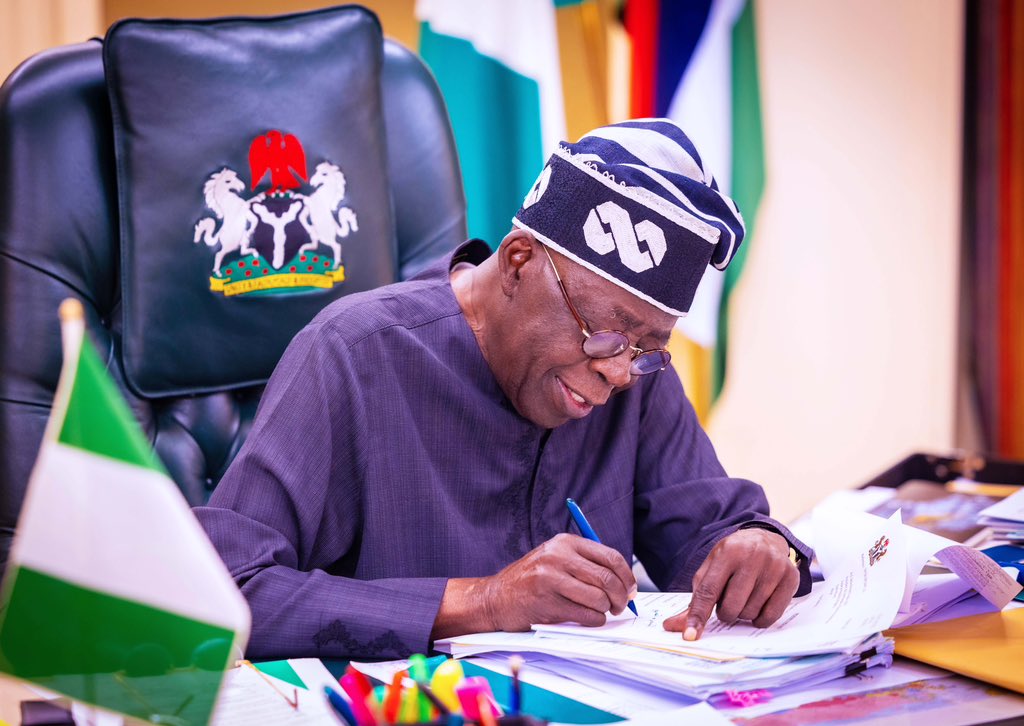
TASKS government on transparency in conditional cash transfer
Civil Rights advocacy Group HUMAN RIGHTS WRITERS ASSOCIATION OF NIGERIA (HURIWA) has expressed worry about the apparent inability of the Federal government to come clean on how N330 billion was disbursed to 8.1 million households without any compliance with the principles of transparency and accountability. “Most Nigerians are wondering whether this huge sum of public funds were shared to ghosts or to real citizens since these households are not known by millions of Nigerians.”
Besides, HURIWA has raised alarm that corruption is perceived to be so high within the government circles even as the Rights group said it was wrong for President Tinubu to keep silent in the face of mounting accusations of corruption affecting some of his appointees including the allegations of acquisitions of exotic housing assets by the Minister of the Federal capital territory Mr. Nyesom Wike with allegedly looted public funds.
HURIWA recalled that the federal Government had few days ago, announced that it has disbursed a total of N330bn to 8.1 million households across the country under the National Social Safety Net Programme, aimed at cushioning the harsh effects of economic reforms on Nigeria’s poorest and most vulnerable citizens.
The disclosure was made in Abuja by the Minister of Finance and Coordinating Minister of the Economy, Wale Edun, after a review meeting of the Special Presidential Panel on Social Investment, inaugurated by President Bola Tinubu in February.
Edun explained that the programme, which experienced delays earlier in the year, was now firmly back on track following the successful integration of biometric data through the National Identification Number. This integration, he said, was crucial to ensuring transparency, curbing leakages, and eliminating political interference.
According to the minister, out of the 19.7 million households captured in the National Social Register—representing about 70 million Nigerians—8.1 million households have already received at least one tranche of the N25,000 stipend. Some beneficiaries have received two or three payments depending on verification outcomes.
Reacting to the widespread failure of the Federal Government to evidently show believable proof of how this humongous cash were disbursed and to clearly publicise the identities of these beneficiaries, HURIWA said it is shocking that a democratically elected government put in place by the people, could come up with such seemingly phantom claim to have distributed financial lifelines to some impoverished citizens without any concrete evidence.
In a media statement by the National Coordinator Comrade Emmanuel Onwubiko, HURIWA criticised the federal ministry of Finance and the Coordinating ministry for the Nigerian economy for issuing out the press statement making the claim that can’t be empirically verified just as the Rights group said over ten thousand members of the organisation spread across the Country has not reported knowing or hearing about any Nigerian poor citizens/households who benefitted from the cash redistribution by the federal government.
“We are challenging the Federal Ministry of Finance and the Coordinating Minister of the Economy to prove to Nigerians that his ministry paid out the sum of N330 bn to 8.1 million households by publishing on the website of the ministry and newspapers the identities of the beneficiaries, their locations and the number in each of the benefiting states or local government areas. This demand is made in good faith because we have been unable to see or know anyone out of this 8.1 million households that got the N25,000. As citizens of Nigeria, we are entitled to be adequately informed because the methodology said to have been adopted by the government in redistribution of this taxpayers’ money is opaque and lacks ingredients of transparency and accountability.”
HURIWA is also urging President Bola Ahmed Tinubu to speak up about the growing accusations of corruption against some of his cabinet-level appointees one of which is the minister of the FCT.
HURIWA recalled that former presidential candidate of the African Action Congress (AAC) in the 2023 election, Omoyele Sowore, had petitioned the Attorney-General of Florida, James Uthmeier, demanding the forfeiture and prosecution of alleged multi-million-dollar properties secretly acquired in the United States by the Minister of the Federal Capital Territory, Ezenwo Nyesom Wike.
In a petition signed by his counsel, Deji Adeyanju, dated September 22, Sowore alleged that Wike, alongside his wife, Justice Eberechi Suzzette Nyesom-Wike of the Nigerian Court of Appeal, unlawfully purchased three lakeside properties in Winter Springs, Florida, worth over $6m.
The petition claimed the acquisitions were “conducted entirely in cash, thereby circumventing banking oversight and raising significant money laundering concerns.”
According to the documents, the properties include 113 Springcreek Lane, purchased for $535,000 and transferred to Jordan Wike; 209 Hertherwood Court, purchased for $459,157 and transferred to Joaquin Wike; and 208 Hertherwood Court, purchased for $465,000 and transferred to Jazmyne Wike.
The petition stressed that Wike, “a career politician with no record of legitimate private enterprise,” could not have earned the income to fund such acquisitions, adding that the assets were not declared to Nigeria’s Code of Conduct Bureau in violation of constitutional obligations.
Sowore, in his petition, stated that, “The evident pattern in this case involves large cash acquisitions by a long-serving public officer with no legitimate private earnings, the immediate transfer of title to his children, and the concealment of true beneficial ownership.
HURIWA said: “Whilst we await the decision of the foreign entity regarding the petition said to have been sent to them, accusing the minister of FCT of illegally buying up juicy housing assets in the USA using allegedly looted public funds. But we expect that when such a very weighty accusations are made consistently against a serving minister, the President ought to publicly make a statement regarding what the position of his government is especially given that the President told the World in Brazil that his administration is waging a relentless war against corruption.”
“We know that when accusations of corruption was made by the then minister of Humanitarian Affairs and Poverty Alleviation, President Tinubu suspended and thereafter fired the minister from her duty. Nigerians expect that since nobody is above the law, when accusations of corruption are made against a Nigerian public office holder, the appointing authority is expected to weigh in one way or the other so the citizens are assured of the government’s commitment to the war against corruption. The President should also direct the Minister of Finance to furnish Nigerians with verifiable evidence to prove that government actually disbursed N330 billion to some poor households”.
-

 News10 months ago
News10 months agoNUJ FCT Council Mourns The Loss of Senior Journalist, Isaiah Abraham
-
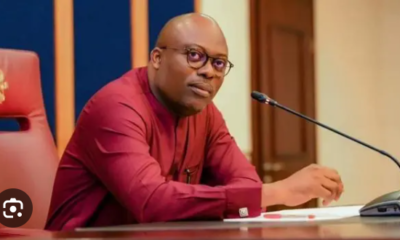
 News10 months ago
News10 months agoHURIWA Declares Governor Fubara’s Emergence as Divine, Urges Support for Rivers State’s Progress
-
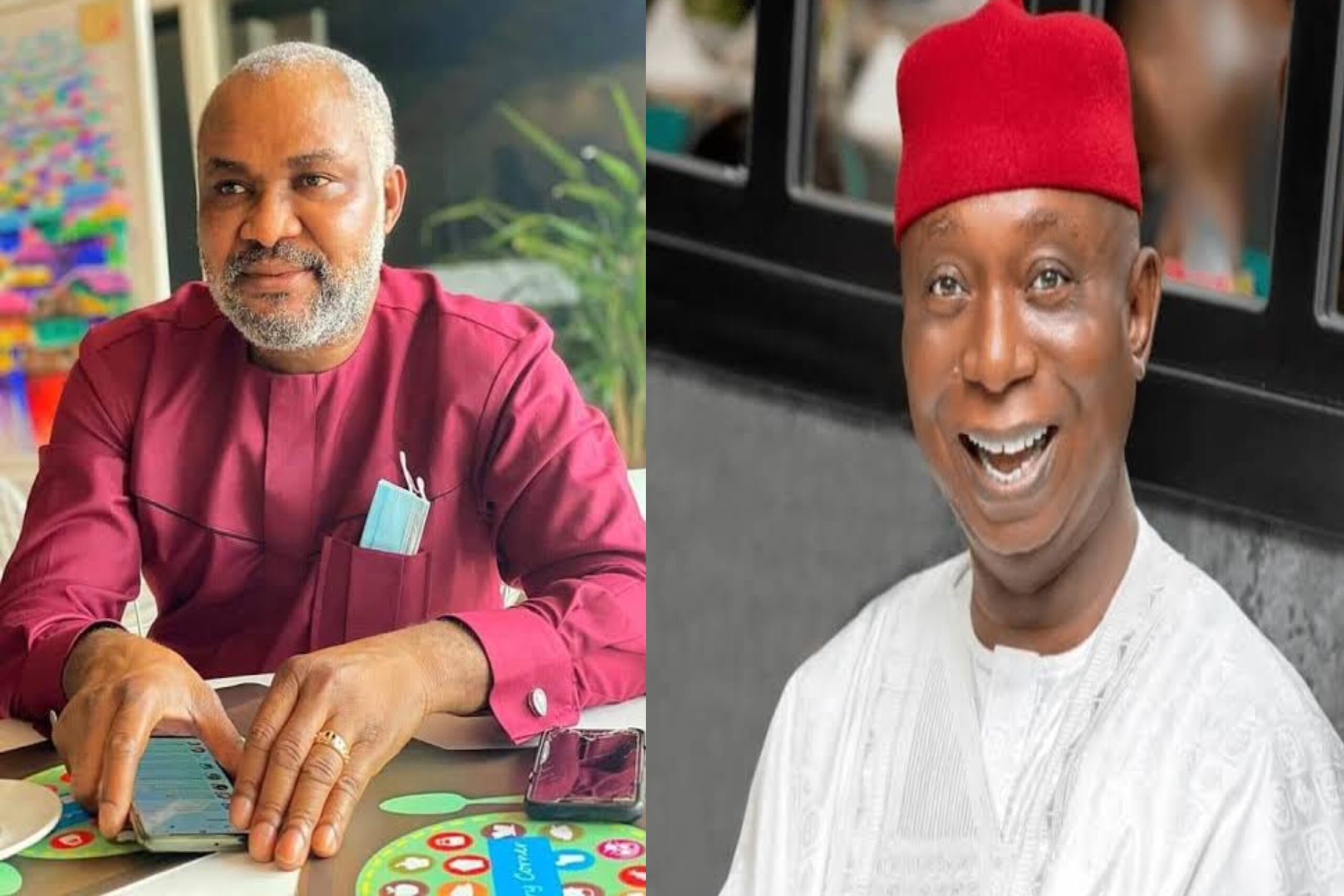
 News10 months ago
News10 months agoAnioma State as panacea to South-East marginalization – By Emmanuel Onwubiko
-

 Opinion8 months ago
Opinion8 months agoNIGERIAN WOMAN IN DIASPORA, CULTURAL SHOCKS – By Stacey Ukaobasi Onwuegbuchulam
-
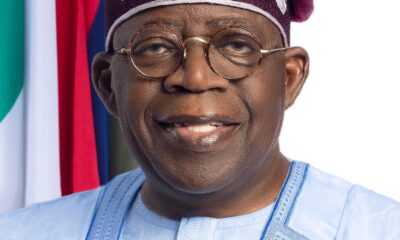
 News11 months ago
News11 months agoHURIWA Blames Serial Stampedes on Weaponized Poverty, Warns of Nigeria’s Rapid Decline
-
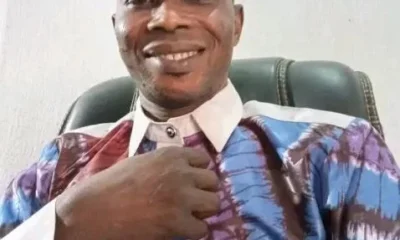
 News10 months ago
News10 months agoJealous Husband Stabs Nigerian Bishop To Death Over Suspicion Of Sleeping With Estranged Wife
-
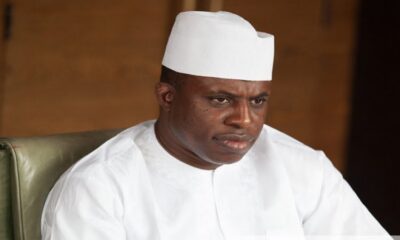
 News10 months ago
News10 months agoTinubu sympathizes with ex-speaker Bankole on the death of his mother
-
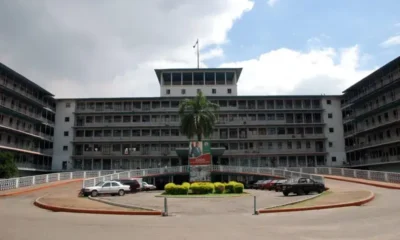
 Health8 months ago
Health8 months agoA complete list of 154 healthcare facilities across Nigeria that provide free emergency obstetric care and VVF (Vesico-Vaginal Fistula) surgeries.
